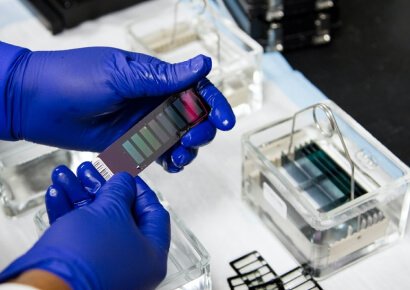Plasma TEST
Process
A Plasma Test involves the collection of blood with anticoagulants and centrifugation to separate plasma—the clear liquid portion containing water, electrolytes, proteins (like albumin, globulins, fibrinogen), hormones, and clotting factors It's used for clinical chemistry panels—such as metabolic, liver, kidney, and electrolyte assessments—as well as coagulation assays like PT, aPTT, and thrombin time Compared to serum, plasma allows quicker processing (no clotting wait), gives ~15–20% more sample, and better reflects in vivo substance levels—ideal for STAT and emergency testing Tests on plasma protein concentrations (e.g., albumin, globulin, immunoglobulins) help diagnose conditions like inflammation, liver or kidney disorders, autoimmune diseases, and nutritional deficiencies

Prothrombin Time Test
The Prothrombin Time (PT) test is crucial for evaluating blood clotting and managing anticoagulant therapy. advanced laboratory offers accurate and timely testing, ensuring you receive reliable results that help your healthcare provider make informed decisions about your treatment. skilled technicians ensure the highest standards of quality and confidentiality. Consult with healthcare professionals to discuss your results and any necessary follow-up.
Glucose Plasma Test
The glucose plasma test is a blood test that measures the concentration of glucose (sugar) in the blood plasma. It is commonly used to diagnose and monitor conditions such as diabetes and prediabetes. This test can be done in a fasting state (fasting blood glucose test) or at any time (random glucose test). High levels of glucose in the blood may indicate that the body is not using insulin properly, which is a key feature of diabetes. Monitoring blood glucose levels is crucial for managing diabetes and preventing complications such as cardiovascular disease, kidney damage, or neuropathy. The glucose plasma test is a vital tool for maintaining overall health.


Plasma Fibrinogen Test
The Plasma Fibrinogen Test measures the amount of fibrinogen, a protein essential for blood clotting, in your blood. It helps assess your risk of bleeding disorders or clotting disorders. This test is often used to diagnose conditions like liver disease, disseminated intravascular coagulation (DIC), or chronic inflammatory conditions. A high or low fibrinogen level can indicate potential medical concerns and guide further diagnostic steps.

